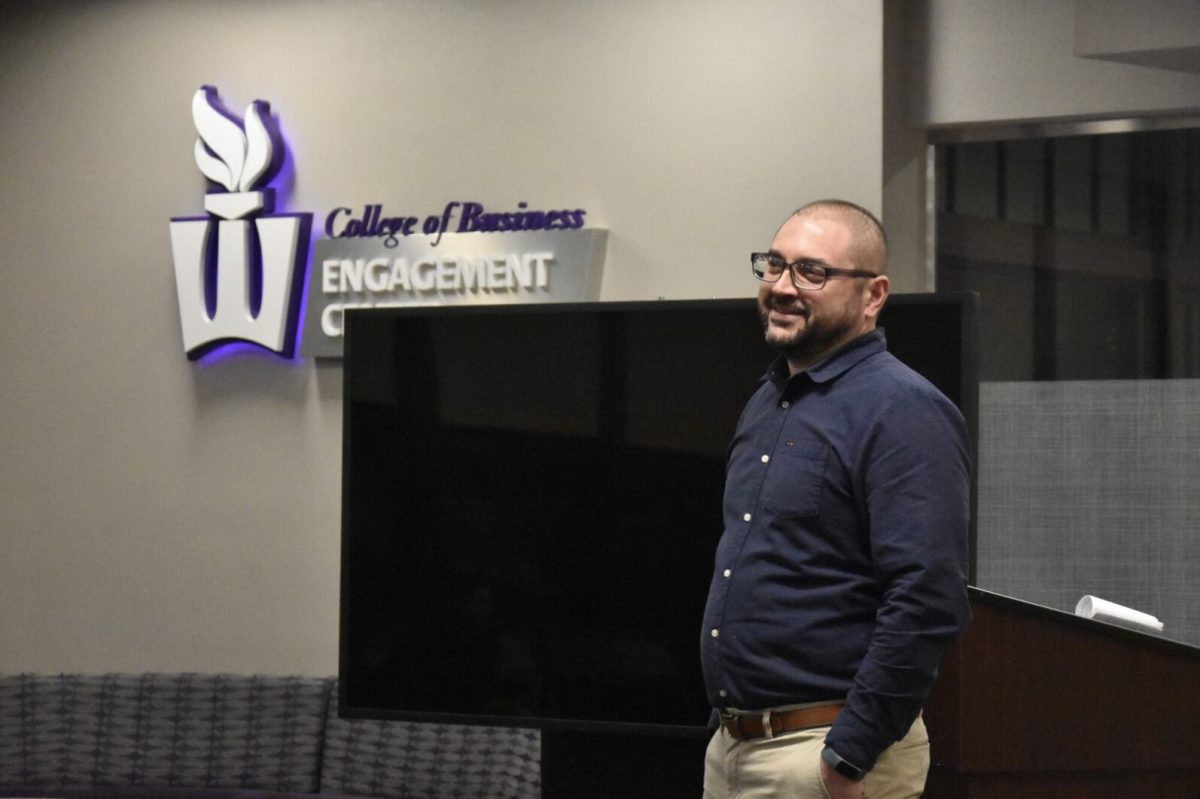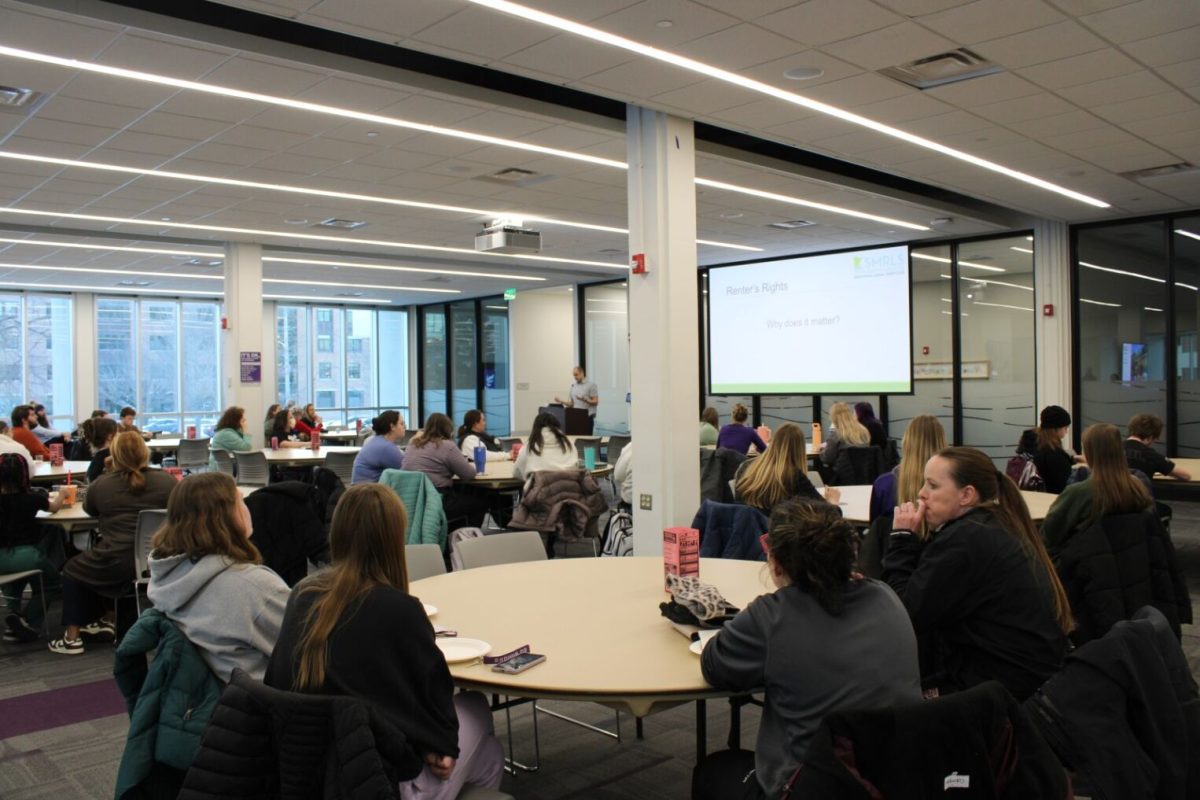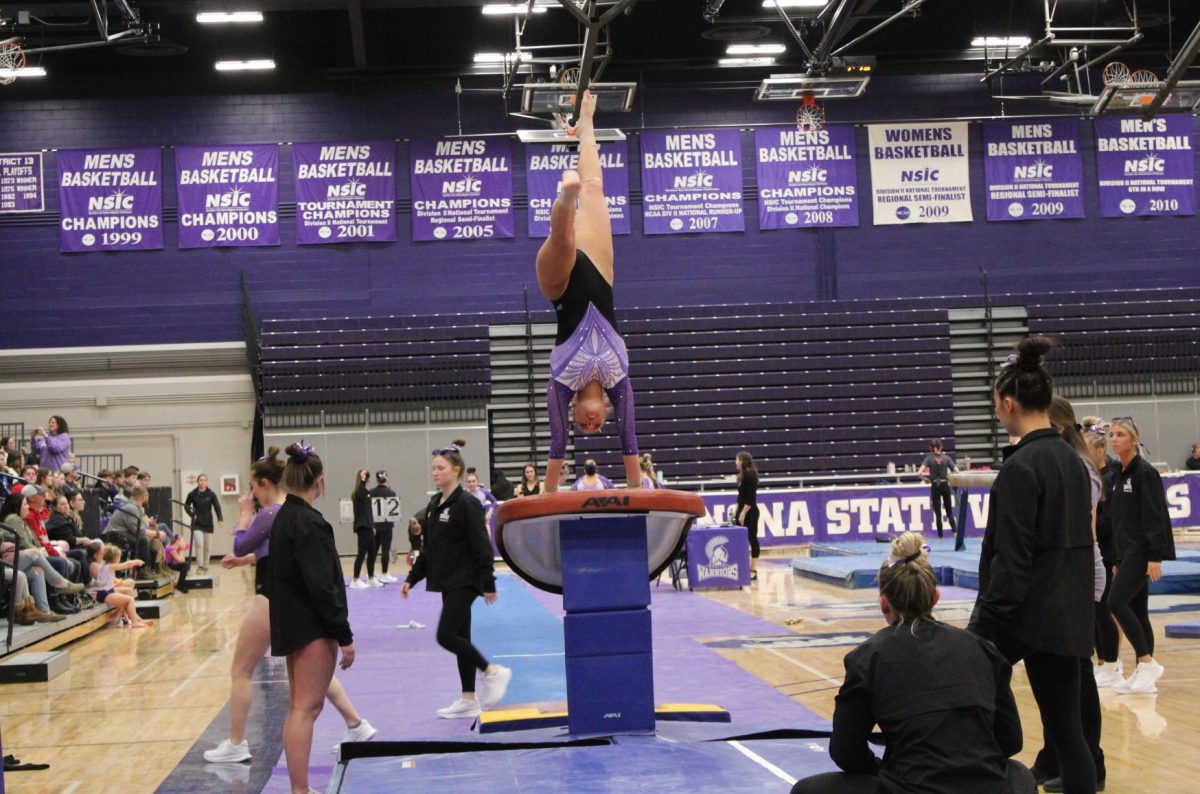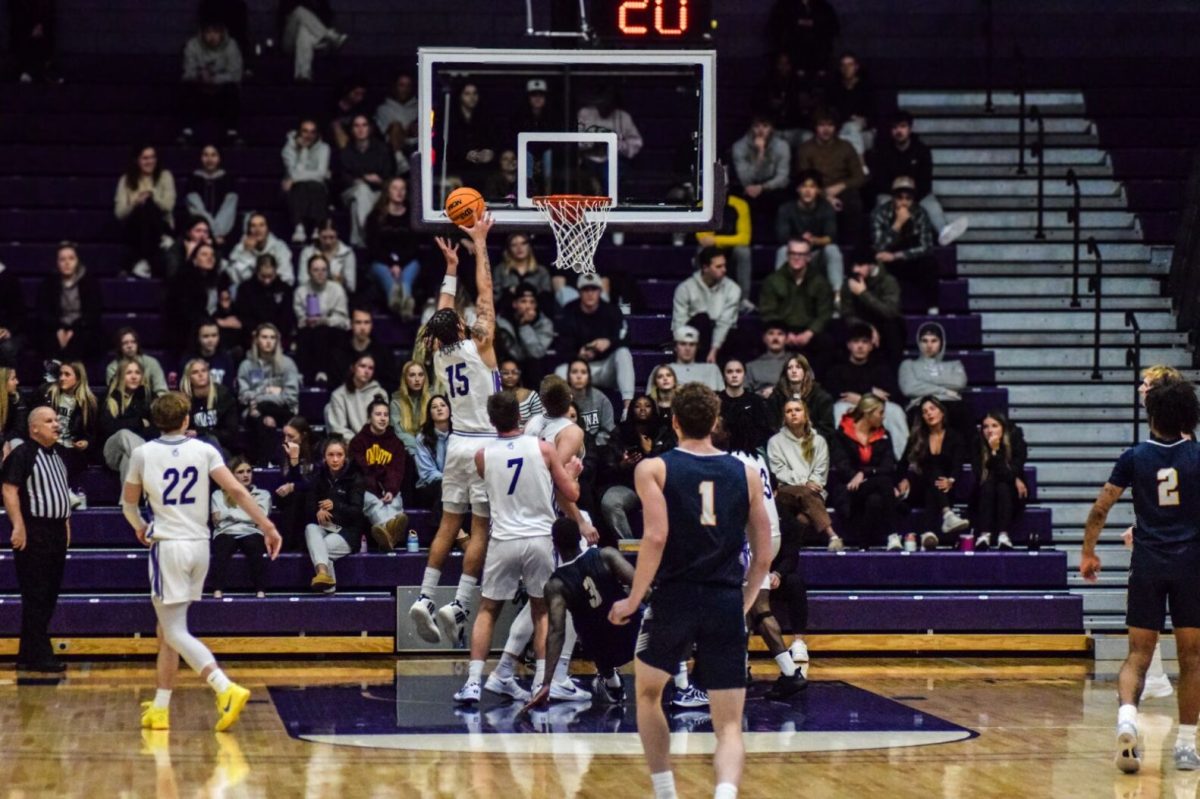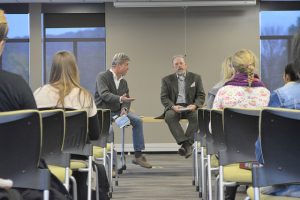
Kim Chapman (left) and Jim Armstrong (right) read from their book, “Nature, Culture, and Two Friends Talking,” on Wednesday, Oct. 28 in Haake Hall. (Photo by Brianna Murphy)
Elizabeth Pulanco/Winonan
As part of the Great River Reading Series, Winona State University English professor Jim Armstrong and co-author Kim Chapman read sections of their book “Nature, Culture and Two Friends Talking.”
Armstrong has been involved with the Great River Reading Series for many years and knows how important it is for students to participate in the readings.
“The series is a part of our curriculum so students can experience the working life of writers and get to meet actual living writers rather than just studying dead ones,” Armstrong said.
“Nature, Culture and Two Friends Talking” contains conversations Armstrong, a poet who loves science, and Chapman, an ecologist who writes poetry, have had over the course of their 30-year friendship.
This conversation between Chapman and Armstrong is displayed within a series of emails and essays they have written together and to each other.
The book is organized into three questions. The first question was, “Does nature nurture the experience of people?”
To address this question, Armstrong and Chapman read different stories from the book about their own experiences with the natural world.
Armstrong read from an essay, which told the story of his daughter’s first experiences with nature. The essay described how the city environment he was living in at the time contrasted with the woodland area his family was visiting.
Armstrong used detailed descriptions of the different grasses, the scent of the fresh air and his daughter’s experience with nature, especially when she was picking and eating the wild berries.
“Her moon-like face was stained with the juices of wild berries,” Armstrong read.
Chapman added to Armstrong’s statement by describing his experiences staying with a farmer who also had a butterfly collection.
“He was a farmer by choice, and by passion, an expert on butterflies,” Chapman said.
Chapman and the farmer compared their notes and both admired the collection of butterflies.
Along with sharing their passion about nature, Armstrong and Chapman discussed the current issues facing the environment, like climate change and pollution.
To help discuss these issues, the second question the two friends address in their book was, “How does a lover of nature react to bad news about the impact of humans on nature?”
This question was answered through a series of emails Armstrong and Chapman had sent out to each other. The emails between the two friends showed the different sides of the discussion about environmental issues. Armstrong’s views were cynical and unenthusiastic, while Chapman appeared apathetic and neutral.
After discussing their reactions, Chapman discussed his own teaching experience and how someone’s outlook can affect their students.
“When talking about environmental change to younger people, we remain positive,” Chapman said. “A dire outlook on the world can really drag people down.”
As a way to promote a better outlook for the future, they discussed the third and final question brought up in the book, “What gives us hope about environmental changes in the future?”
Armstrong and Chapman approached this question with input from the audience. One audience member said she has heard her students talk about how they plan on growing their own food. Chapman said he has noticed, in his work as a private consultant, many companies incorporating eco-friendly practices as a way to sustain their businesses.
Armstrong connects campus nature to what he is teaching his students.
“When I teach poetry I try to get my students to go out and experience the world,” Armstrong said. “I give them the assignment of finding a tree on campus and writing a poem about it.”
Along with showcasing the different reactions people can have to environmental issues and nature, Armstrong and Chapman’s reading also inspired the audience to think about their own relationship with nature.
Senior Brittney Bluhm found the discussion insightful and got her to think about nature in a different way.
“Being from the city, I’ve never really given much thought to how others look at nature,” Bluhm said. “My mom grew up on a farm and always talked about wanting to go back, so I was able to connect the discussion to her experience.”




